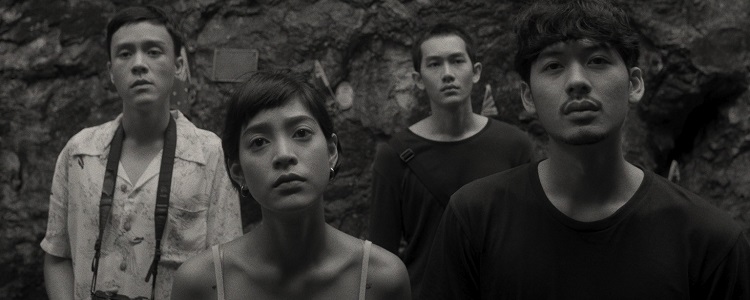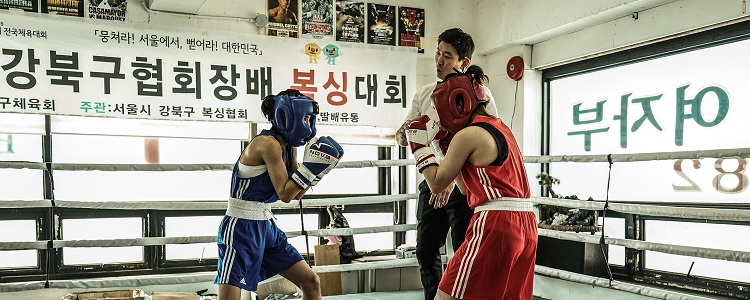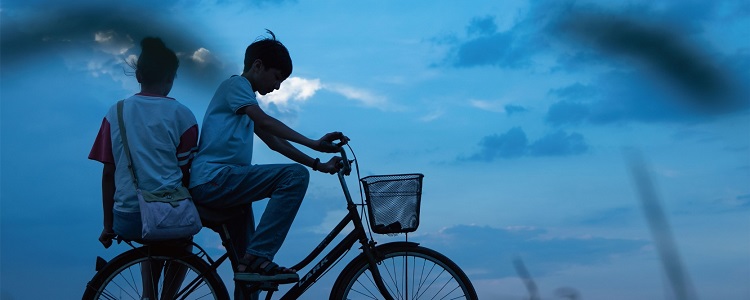
We present the list of Asian films that will be screened at the 71st Berlin International Film Festival, which will take place from June 9th – 20th, 2021 in Berlin, Germany.
In Competition:

Cast: Shin Seokho, Park Miso, Kim Youngho, Ki Joobong, Seo Younghwa, Kim Minhee, Cho Yunhee, Ye Jiwon, Ha Seongguk
Youngho is summoned by his father, who is a doctor. Finding him busy with his patients, one of whom is a famous actor, Youngho has to wait. When his girlfriend Juwon moves to Berlin for her studies, Youngho shows up in the city to surprise her. Through her mother, Juwon has found accommodation at the home of an artist whose beauty intimidates her. Some time later, Youngho goes to lunch with his mother who wants to introduce him to a colleague – it is the same man Youngho met at his father’s clinic. Youngho asks his friend Jeongsoo to accompany him, and after lunch they go to the beach. Youngho falls asleep, and dreams of Juwon. When he wakes up, he braves the considerable cold and goes swimming, while Jeongsoo watches.
For the second year in a row, Hong Sangsoo returns to the Berlinale’s Competition with a film akin to the art of the aphorism: a poetic, philosophical gem. Two mothers attempt to introduce their children to life, but their offspring have decided to write their own introduction. That’s life, and, like all masters imbued with wisdom and wit, Hong appears to be speaking through the old actor when the latter tells Youngho, “However small, there’s nothing but good!” – Berlinale 2021

Cast: Kotone Furukawa, Kiyohiko Shibukawa, Katsuki Mori, Fusako Urabe, Aoba Kawai, Ayumu Nakajima, Hyunri, Shouma Kai
As with the rest of his oeuvre, duplication and mirroring of female characters once again informs Ryusuke Hamaguchi’s latest work, Guzen to sozo. It would not be out of place to make a literary analogy and, if one were to regard his two previous films (Happy Hour and Asako I & II) as novels, this new work could be described as a collection of short stories. The film’s recurring rhythm amplifies this effect. The three episodes, which each revolve around a woman, are in turn divided into three movements, like a piece of music. They tell stories of an unexpected love triangle, a failed seduction trap, and an encounter that results from a misunderstanding. The fragmentation serves to emphasise rather than undermine the exquisitely organic storytelling and mise en scène. Although most of the action takes place in a single space and involves just two actors, not once does it feel like filmed theatre. The secret lies not only in the writing, but also in the notion of a more complex temporality in each episode that flirts with science fiction in the final instalment. The moments we witness are crystallised into touching universal destinies marked by choices, regrets, deception and coincidences. They are the film’s true protagonists. – Berlinale 2021
Berlinale Special

Cast: Lam Ka Tung, Liu Cya, Mason Lee, Hiroyuki Ikeuchi
Rookie policeman Will Ren and his partner, the veteran cop Cham Lau, are pursuing an obsessive and especially brutal murderer of women. To lure this “hand-fetish” ripper, they use the criminal Wong To, who needs to atone for causing an accident involving Cham’s family, as bait. But this young woman is both unpredictable and insubordinate. Surrounded by ever more insane bouts of violence and increasingly in danger of falling victim to the bestial serial killer herself, she fights the traumas of the slums by her own means. The ultra-long showdown really packs a punch: if you don’t shudder, you’ll scream.
Alongside the great cast, the trademarks of Hong Kong genre filmmaker Soi Cheang (Dog Bite Dog) include his brilliantly cool observation of well-honed cop rituals – at times condensed into a one-shot-per-second montage, at others edited at a more leisurely pace – as well as close-ups of those struggling to survive amid the city’s trash heaps. Making use of monochrome, “hidden object” aesthetics, the film probes the boundaries of the bearable, traversing them experimentally with excesses of violence, subtle gender-bending and tender gestures in a world that has lost its humanity. – Berlinale 2021
Encounters

Cast: Olegunleko Ezekiel Gbenga, Thi Minh Nga Khuong, Thi Dung Le, Thi Cam Xuan Nguyen, Thi Tham Thin Vu
The slums of Ho Chi Minh City are bleak, unwelcoming spaces that don’t let in much sunlight. A Nigerian man goes about his day, apparently familiar with his environment. Has he lived here for long? He and the young son he left back home seem to be used to the meagre interaction that video calls allow. When his contract with a football team is terminated, he moves in with four middle-aged Vietnamese women. Together they revert to a primal state: cleaning, cooking, eating and sleeping together, and having sex.
First-time filmmaker Lê Bảo has composed a delicate, sensory meditation that conjures up many a thought in the viewer’s mind. Raw, intimate fears about isolation and survival. Questions such as: are humans really so superior to fearful, naked animals, bound as we are to turning around in circles, whether in small cages or around the globe? As he lays bare our judgmental selves, Lê Bảo instinctively echoes such tragically relevant issues as the betrayal of the promises of globalisation and emigration. But he also acknowledges humankind’s craving for tenderness and beauty. A visionary and uncompromising new voice in Asian and international cinema. – Berlinale 2021
Berlinale Shorts

Cast: Kong Weiyi, Zhang Chen, Guo Yanyun, Zhao Hua, Hao Mengfu, Li Xuejian
A family on a rare visit to their grandfather. They cook lunch, set the table and sit down to eat together. “Come and show me your film,” he asks his grandson who will soon be going to study in faraway Russia. “And pour me some more of that liquor.” While one of them dozes off and the other leafs through an old photo album, the day goes by. The sadness of parting is in the air. Then it’s time for them to leave again. In Day Is Done, Zhang Dalei picks up where his autobiographically inspired feature-length debut Summer Is Gone left off. Set once again in the director’s home town, the film also features the same cast – now six years older – portraying the same roles and characters. – Berlinale 2021

Cast: Gérard Thomas, Jean-François Geneste, Souleymane Sanogo
In mining, a slag heap refers to an artificially raised hill consisting of the cleared waste that accumulates during the extraction of raw materials. Birch trees now grow where workers from near and far once went underground to labour hard for very little money. Nowadays, this is a place where men meet to have anonymous sex and share moments of intimacy. “I think he was gay too,” says one of these men about his father who was a miner. Today, as in the past, those who cannot find shelter elsewhere live here. Home is far away, returning is impossible. Human beings need more than water and a tent. – Berlinale 2021
Panorama

Cast: Kumi Takiuchi, Ken Mitsuishi, Masahiro Umeda, Yuumi Kawai, Yohta Kawase, Misa Wada, Mitsuko Oka, Yuya Matsuura, Ryo Ikeda, Tomoki Kimura
For Yuko, it’s all about the truth. A documentary filmmaker, she helps out as a teacher at her father’s private tuition school in her spare time. She’s determined not to let the TV station’s editorial staff censor her new project. Her film is going to tell the true story behind the public scandal of a relationship between a student and her teacher that ended in two suicides. But when Yuko learns that her father has also had an affair with a student, the filmmaker tries to do the right thing and has to rethink her own principles.
Yujiro Harumoto finds moving and authentic images for his drama about the balancing act in documentary between cinematic and actual truths which homes in on the question of whether it is right to play one off against the other. Yuko No Tenbin also delivers an atmospheric portrait of a society in which shame and dishonour can have drastic social consequences. – Berlinale 2021
Forum

Cast: Apinya Sakuljaroensuk, Waywiree Ittianunkul, Sirat Intarachote, Sornrapat Patharakorn, Bhumibhat Thavornsiri
How do you put together the puzzle if the image is missing? You start from individual pieces and see how they fit together. There are the four young actors on a trip to Kanchanaburi, “a city so meaningful, I’d rather die if I don’t get to be with you”, as the song goes. They stay in a hut in the forest by the river, drink on the terrace, talk and watch the fireworks at night, the same scene they later re-enact on the stage set back in Bangkok. The harried young woman is lost in the same forest, or maybe in the young actress’ dream; when the screen splits into two distinct parts, it’s also not clear how they fit together. The foursome came to Kanchanaburi to see the museum, but it’s closed for refurbishment, although they still manage to walk along Hellfire Pass. You can hear the sounds of construction as the scenery rushes past on the train; you can see the rails rush towards you from the window of the theatre set. If you follow the Death Railway back from the west, you reach Bangkok too, which was once home to the Dusit Zoo; the actors also cluck, howl and bark, in city and country alike. What if the missing image isn’t one place or moment in time, but many? – Berlinale 2021
Forum Expanded

We had been preparing for this moment since we were young boys. The other men in the water beside me had now started to scream in anticipation. I started to feel the shifting sand beneath my feet and, egged on by the voices behind us, we started to wade further into the deep, shoulder first, to break that impending wall of water. Startled by an excited howl I had looked over my shoulder and found the remains of a skeleton, that by now had had the flesh entirely washed off its bones, bracing itself for its last clash with the waves. I felt the pull of currents swirl and grab on to my ankles as I listened to the rising growl of what was lurking ahead. The men beside me had disappeared and as I stood alone looking up at the shadow swallowing me, I could swear I felt sweat run down my leg beneath the waters. Darkness.
In the dark of the night during religious festivities in a village in South India, the margin between land and water becomes a point of release beyond which characters experience fear, surprise, anger, sadness, trust, anticipation, excitement, contempt, but also rapture as they wash off their masquerade. (Sohrab Hura) – Berlinale 2021

Cast: Sagnik Mukherjee, Kheya Chattopadhyay, Trina Nileena Banerjee
In an empty hospital in Kolkata, India, a man faces protocols of blood, a subtly discriminatory office, and a vacant operating theater. His mind is on a loop of the last months of his wife’s life, when a quiet argument developed. When is the end of pharma-medical care, whose life is it anyway?
They were an estranged couple, thrown back into intimacy by an unknown illness. Even in a dreamworld of his making, the paranoia of infection is twinned with a hesitant intimacy. The film revisits themes from Mohaiemen’s earlier Tripoli Cancelled (2017): family unit as locus for pain-beauty dyads, abandoned buildings as staging ground for lost souls, and the necessity of small prevarications to keep on living. In Tripoli, the boredom of daily life is punctuated by letters to an invisible wife, and endless readings of Richard Adams’s dark children’s book “Watership Down”. In Jole Dobe Na, a memory of final days is kept alive by the partner, and the book readings are from Syed Mujtaba Ali’s stories of Europe between the two wars. –Berlinale 2021

Numerous colonial places, including coastal caves and military bunkers on many Oreums (small volcanoes inside a main volcanic crater) as well as memories of uprisings and massacres are found in every corner of Jeju Island.
This work is based on René Magritte’s “La Condition Humaine” (1935), which offers a view of the outside of a cave superimposed on a canvas. It also includes some quotes from Hollis Frampton’s performance “A Lecture,” making it the voice for the entire work. (Minjung Kim) – Berlinale 2021

Cast: Salaithip Charubhumi, Komsan Sritanaviboonchai
Inspired by the diary of a migrant worker, the documentary weaves several social and artistic threads together: the life a Thai migrant sex worker named Ploy who works in Singapore’s “jungle brothel”; the narratives of other migrant workers; an exploration of Singaporean forests and public parks; and the process through which the artist-filmmaker delves into and revisits Ploy’s experience. Ploy is a character as well as a collage of several visual forms, including painting, photography, photo-roman (photo-novel), 35mm slide projection, letters, and a herbarium. The film reconstructs the journey of Ploy through an array of visual media. (Prapat Jiwarangsan) – Berlinale 2021
Generation

Cast: Lim Seong-mi, Baek Seo-bin, Oh Kwang-rok, Lee Seung-yeon, Park Seo-yoon, Kim Yoon seo
After successfully escaping North Korea and spending months in a social inclusion facility, Jina moves into her new apartment in Seoul. However, the path to a self-determined life continues to challenge the young woman. Her mother, who has become a stranger to her, lives somewhere in town, while her father is still stuck in the north. In order to raise the money for his escape, Jina toils day and night. Following a period of setbacks, she changes her tactics. While working in a gym, she puts on her boxing gloves. The sheer tension of her body reflects struggle for recognition far beyond the boxing ring. The film carefully tells the story of a refugee’s fate in a divided country, the inner border of which is not just on the map. – Berlinale 2021

Cast: Gong Beibi, Huang Tian, Zhang Xinyuan, Yan Xingyue, Luo Feiyang, Wang Yizhu, Xie Lixun, Chen Yongzhong
Like a seismograph, 13-year-old Guo moves through Han Shuai‘s feature debut: locked in a series of close-ups, more of an observer than a participant, quietly registering all of the tremors causing the fabric of her working-class social environment to crumble. Guo becomes witness to her friend accidentally drowning in the river, which results in her inability to deal with her feelings of grief, guilt and longing. The summer heat is as oppressive as the overbearing advances of one of her classmates, the shrill chirping of cicadas permeating the desolation of her loveless home on the outskirts of Wuhan – far away from a mother whose presence in her life is limited only to voice messages. A tender portrait of a young girl defying the confines of her circumstances and coming of age in the process. – Berlinale 2021

Cast: Seol Si-yeon, Bae Yeon-woo, Park So-jung, Han Song-hee
Armed with old-fashioned disposable cameras, four girls set off to find the end of the world. It sounds like an adventure, but when the young photography club members arrive at the final station of Line 1 of the Seoul Metropolitan Subway, on the southern outskirts of the city, it turns out the railway tracks just keep on going indefinitely – as if coming this far has merely made their world even bigger. Undeterred, inspired by the boundless freedom of the summer holidays, they continue their expedition on foot: laughing in the rain, posing on a deserted country road, lost in conversations about the things they come across and the things that move them. In the end, what remains is a feeling, and a picture – of a long summer‘s day and night on the outskirts, with friends. – Berlinale 2021

Cast: John Russel Rey “Reyboy“ Paño, Cresente “Buboy“ Betonio, Cleofe “Neneng“ Betonio, Florecita ”Babe“ Paño, Emibie Paño.
Twelve-year-old Reyboy will soon be leaving his home village of Karihatag to attend school in the city. He loves the sea, the constant sound of waves in his ears and looking towards the wide horizon stretching out before his eyes. The small community in which his family lives, stoically endures the challenges of poverty, overfishing and rural exodus. Despite Reyboy’s pending departure, his parents hope that by saying goodbye, they will give him the opportunity to have a better future. Venice Atienza closely accompanies the boy during this time and together they become immersed in the place of his childhood. They observe the stars and the rhythms of the ocean, decipher cloud images and experience time standing still. The lyrical composition of words and images profoundly cast light on Reyboy’s point of view. – Berlinale 2021
For more information about the festival and the programme please go to: https://www.berlinale.de
Categories: News


